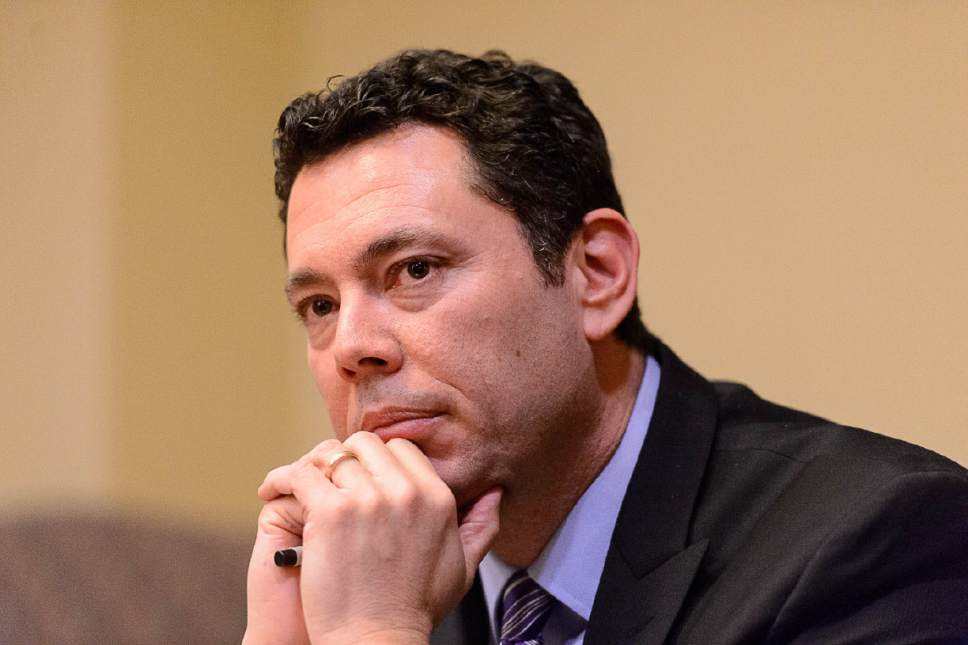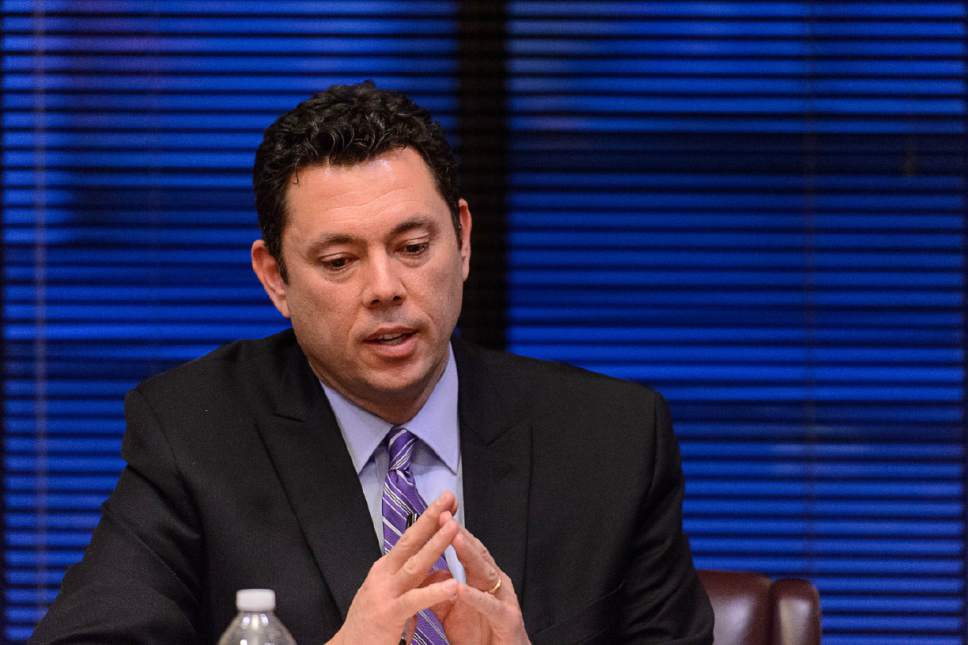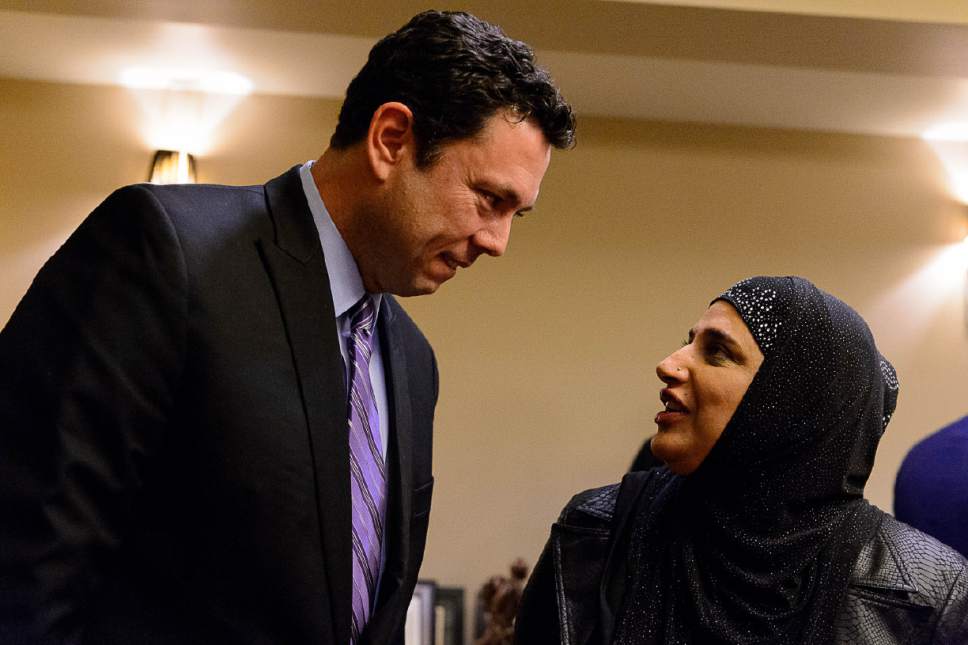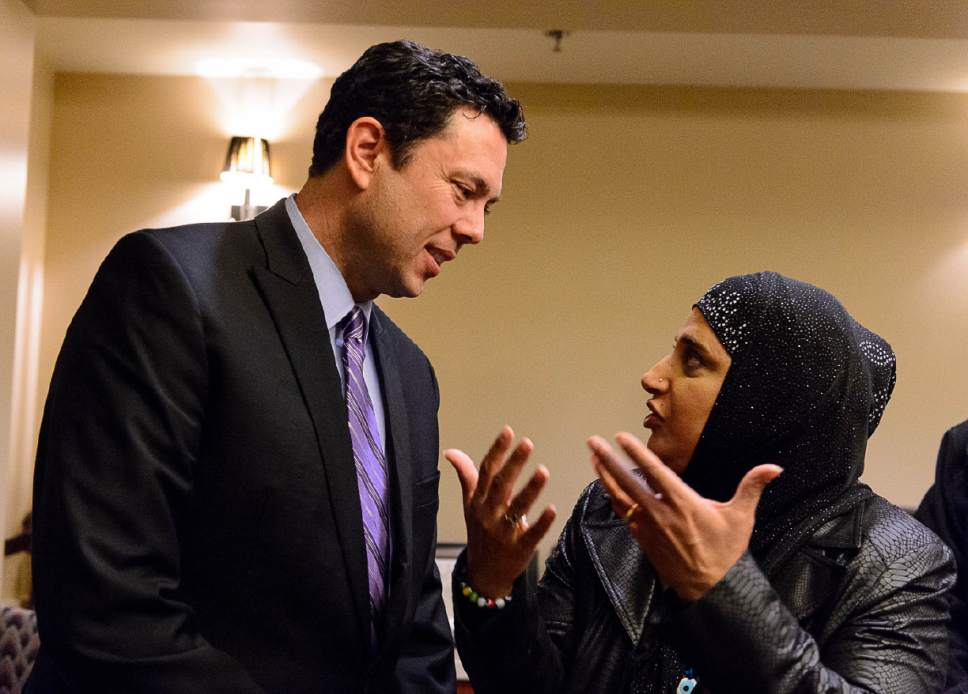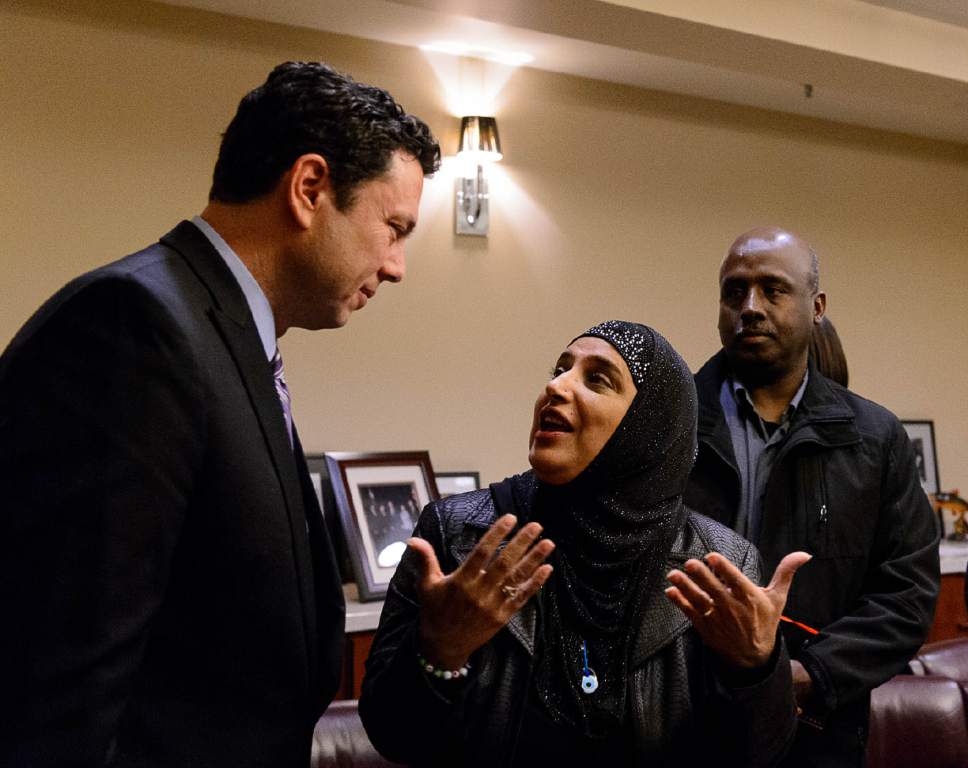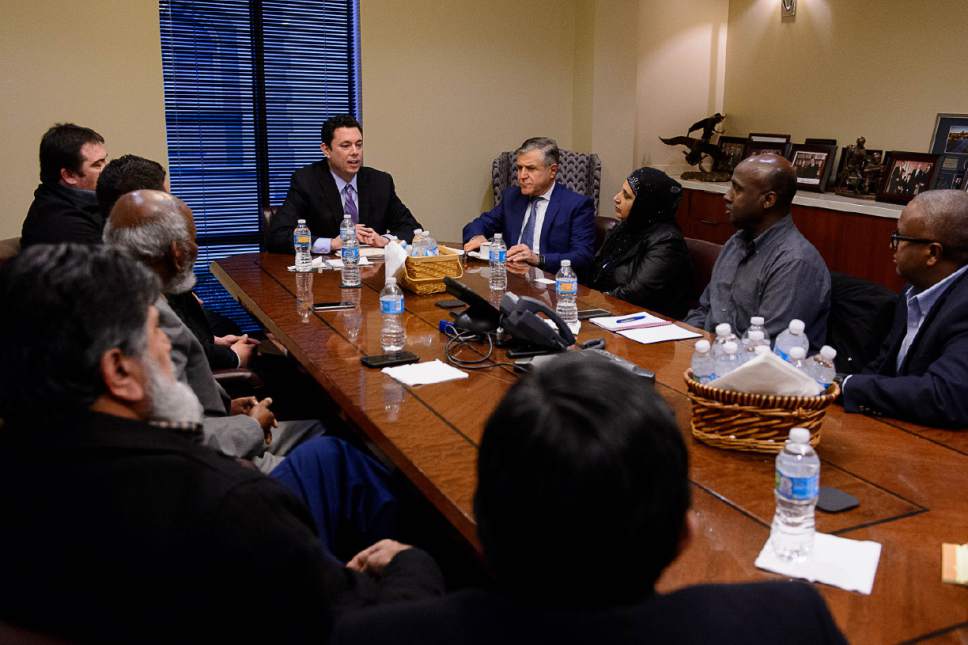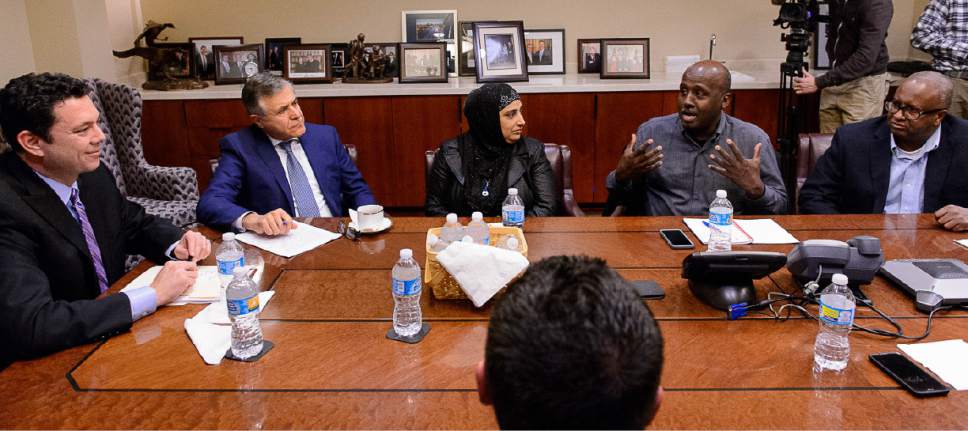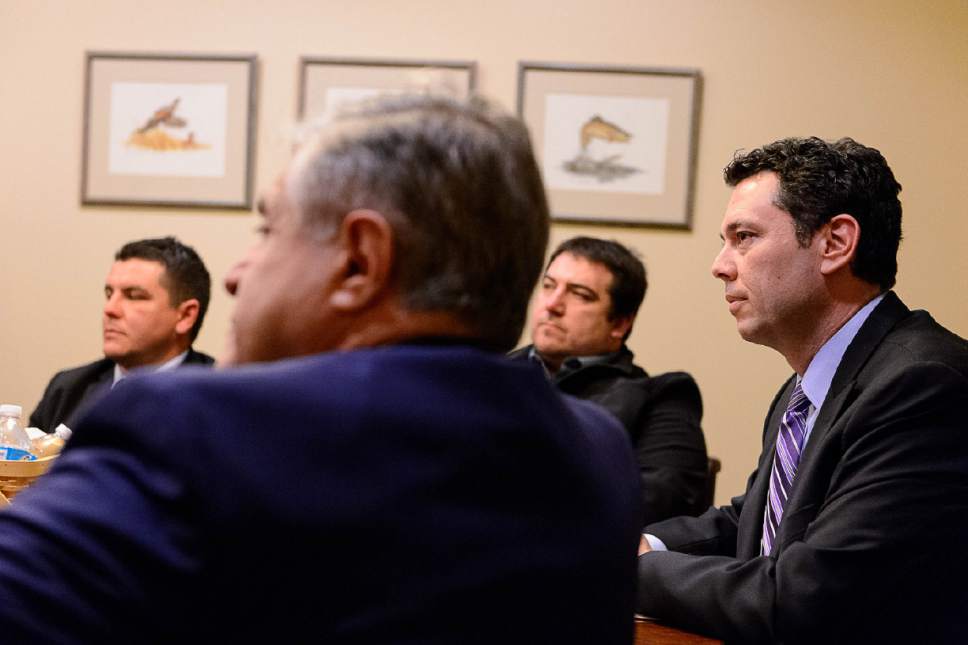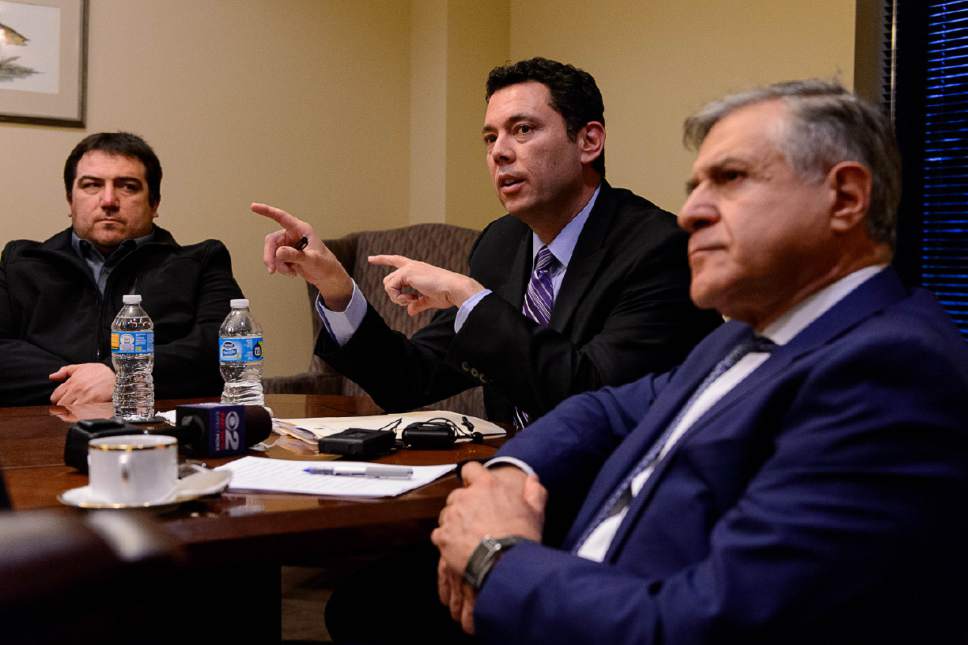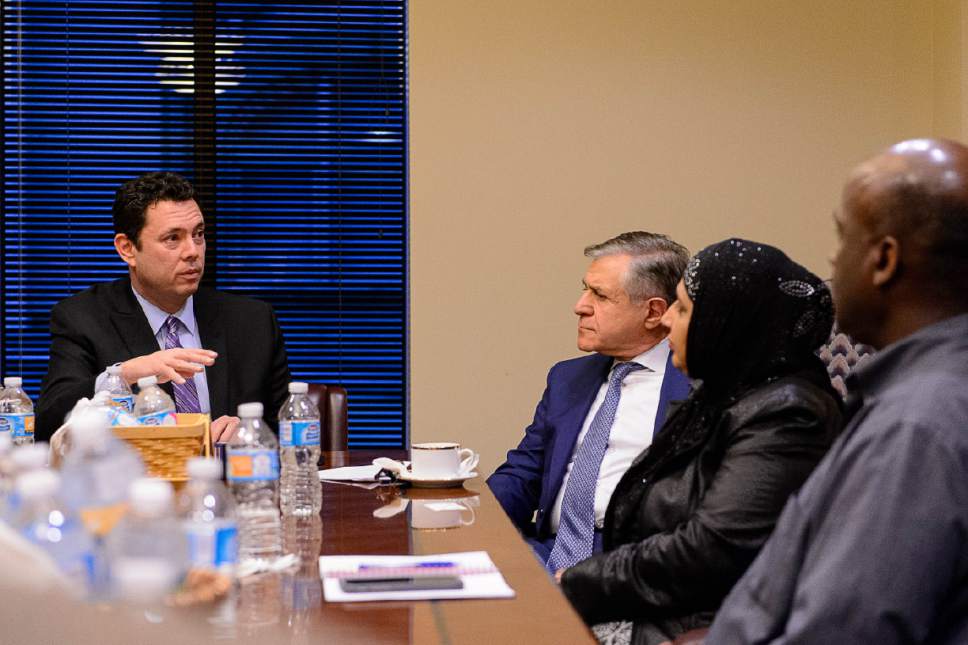This is an archived article that was published on sltrib.com in 2017, and information in the article may be outdated. It is provided only for personal research purposes and may not be reprinted.
A woman in a black hijab turned to Rep. Jason Chaffetz, cutting him off midsentence, to say: You cannot equate Muslims with terrorism.
"Right," the congressman said with a nod and a pause. "Right."
Noor Ul-Hasan, a Muslim woman and activist, kept at him like that for most of the evening, joining a group of nine other Islamic community leaders from Utah in a dialogue Wednesday night with the Republican representative. The conversation focused on concerns over President Donald Trump's recent immigration and refugee executive orders.
They didn't all walk away from the rectangular wooded table with the same perspective. But for Ul-Hasan, it was a start.
"Mormons and Muslims are very much alike," she said.
The group met behind closed doors at a nondescript law office made of brick and stone in the heart of Salt Lake City. When they sat down, a clock outside the board room displayed the time in Tehran, Iran: 3:30 a.m. — 10.5 hours ahead of Salt Lake City.
As they opened the door to speak with members of the media, it was 4:15 a.m. in one of the seven Muslim-majority countries — which also includes Iraq, Libya, Syria, Sudan, Yemen and Somalia — from which Trump has temporarily barred immigration, in addition to a refugee moratorium from all nations.
Chaffetz, who has visited mosques in Sandy and West Valley City and traveled to refugee camps in Jordan and Libya, generally supports Trump's efforts as a matter of national security.
"I think those seven countries are the right countries based on the information that the State Department has provided," he said.
The congressman, though, cautioned that the order must not evolve into a "religious litmus test" and promised to call out the president if he oversteps. During Trump's campaign, Chaffetz condemned as "just unacceptable" the then-candidate's call for a "Muslim ban."
"I think we need to be smart in making sure that they're properly vetted," he said at Wednesday's meeting. "There are people that want to come to this country and do us harm. But they're not just in the Muslim community. They're in every religion."
Many at the meeting said screening refugees is not an issue — that the current 18 to 36 month process consisting of interviews and medical evaluations is sufficient but could be strengthened if needed. The problem, said Bahman Baktiari, a Muslim and executive director of the International Foundation for Civil Society, is that Trump's order was rushed and not properly vetted itself.
He suggests that the penned action on immigration targets the religion at least in perception. "And the perception is just as powerful as the policy," he added.
The edicts were called into question with a nationwide stay, effectively stopping enforcement, issued Friday night by U.S. District Judge James Robart in Seattle. A federal appeals court will weigh arguments in the case.
Abdul Afridi, who came to the U.S. from Pakistan in 1979, said if Trump's order is upheld, immigration "is going to be harder" and the government will "treat you rougher."
"What we heard about America, that's what we found here," he said. "This is the land of opportunity and the free and the brave. But now it looks like they have a cage and you don't know what time somebody's going to put a cage on you."
Chaffetz acknowledged that the process of welcoming immigrants and refugees to communities in the United States — including Utah — "could be better."
"These are friends and neighbors," he said. "They should be embraced, not feared or shunned."
Most of the leaders applauded the congressman for soliciting the sit-down. But the fears aren't erased by one conversation, said Ul-Hasan. She plans to carry her passport with her in any travels in case she or her husband is questioned for having "Muslim names."
"It's dangerous to have to always feel that way," Ul-Hasan, "and look over your shoulder."
Twitter: @CourtneyLTanner


